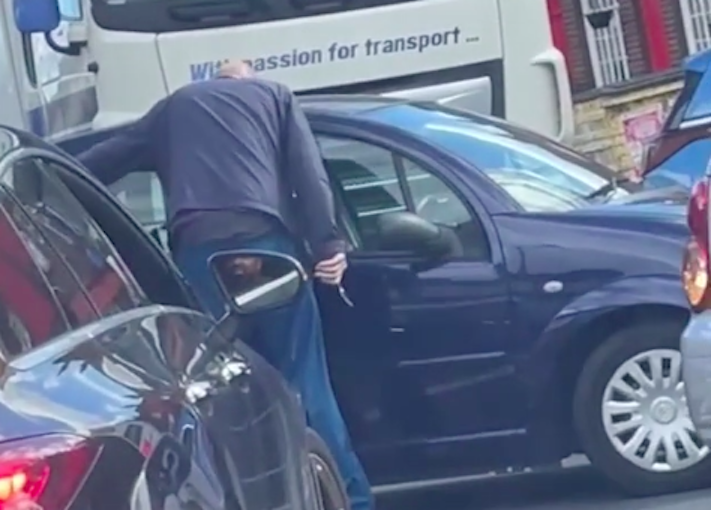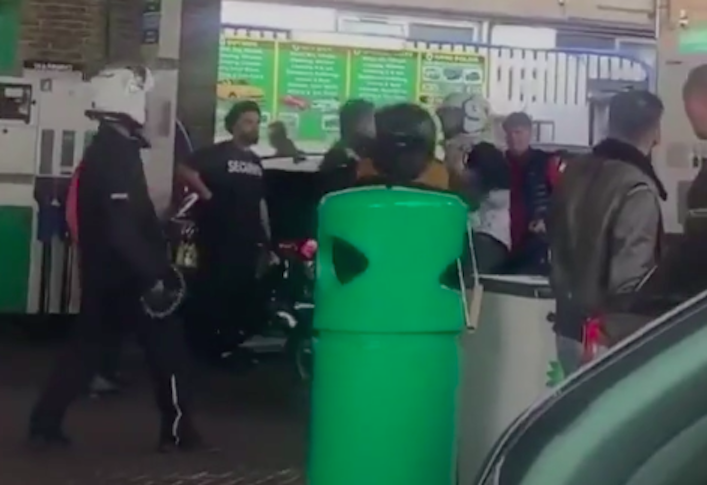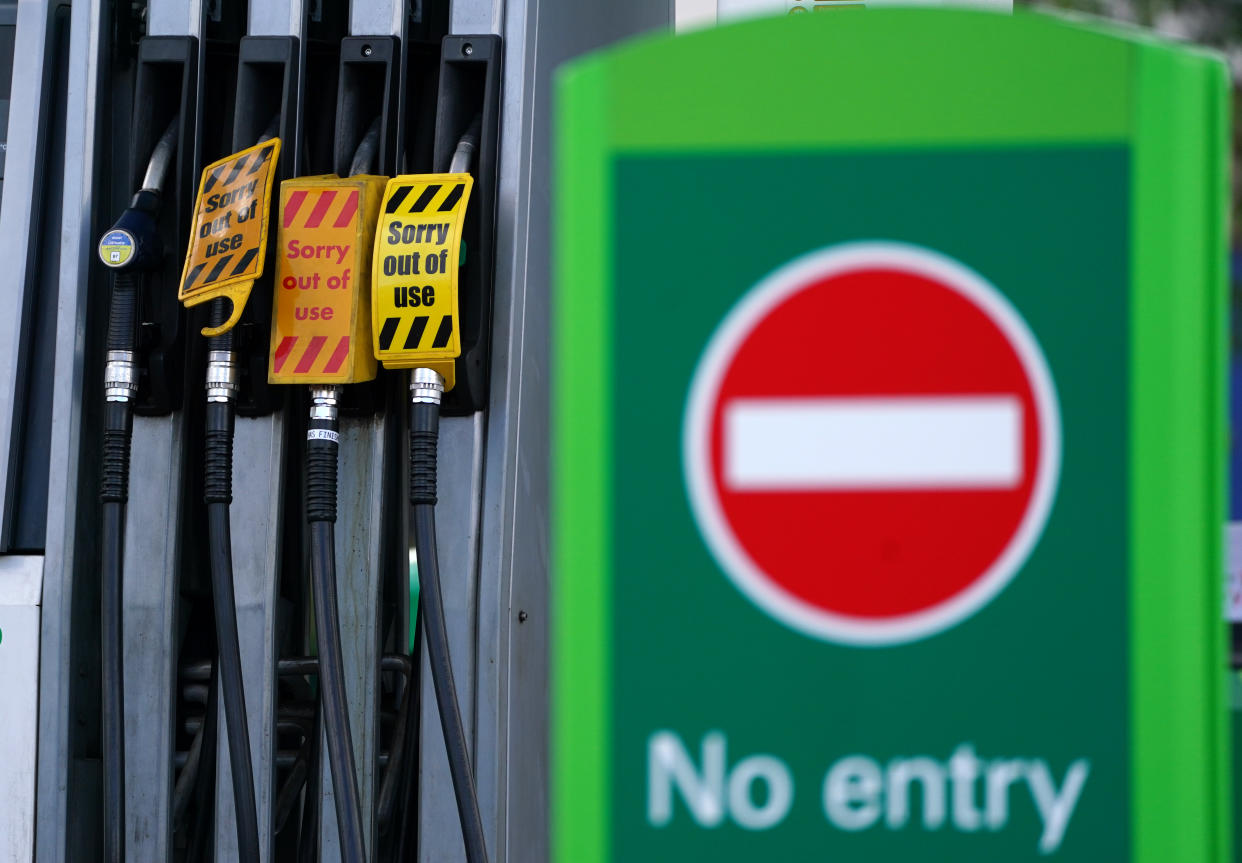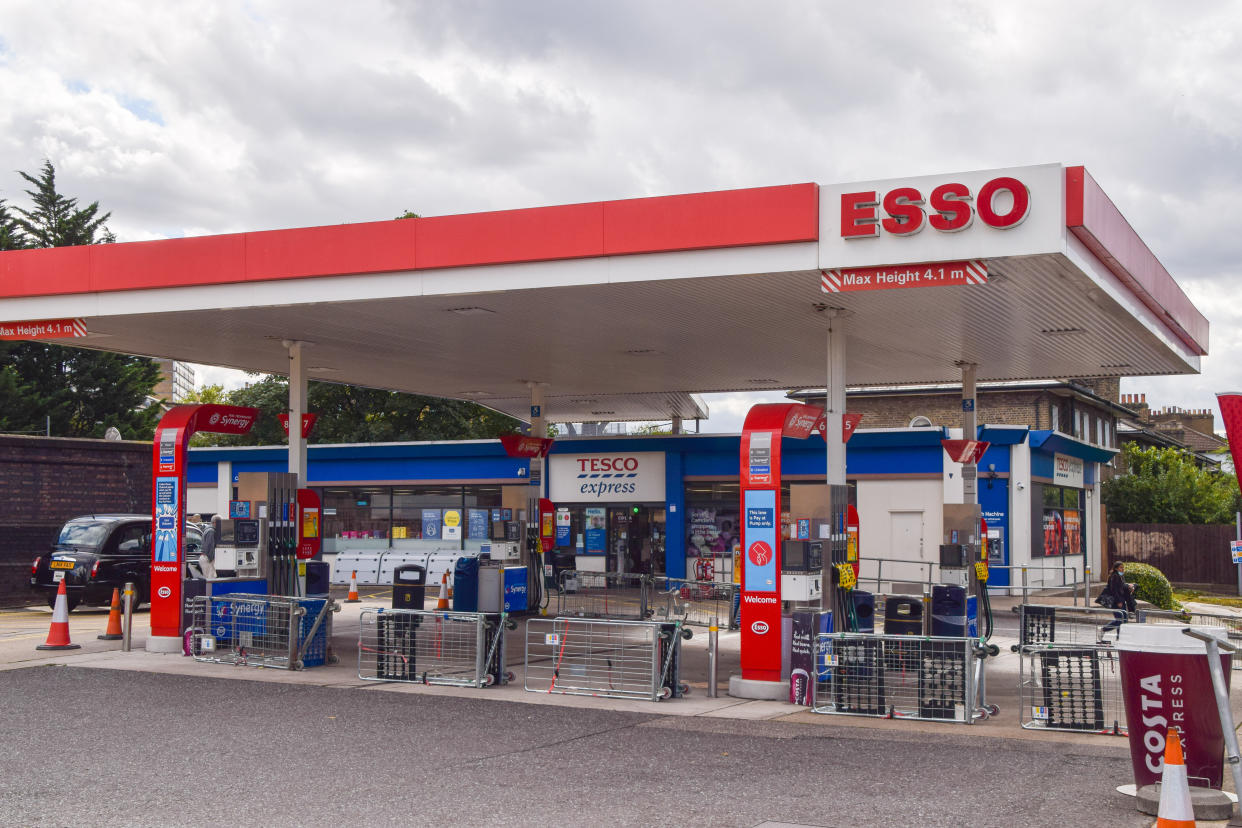'Bees to a honey pot': Panic-buyers 'using social media to track down new petrol deliveries'
People who continue to panic-buy petrol at Britain's pumps have been accused of using social media to track down fuel deliveries before swarming "like bees to a honey pot".
The Petrol Retailers Association (PRA) said on Tuesday that "disappointingly", some members of the public are continuing to panic-buy at filling stations.
Its chairman, Brian Madderson, said panic-buyers are using social media to track deliveries then pouncing on forecourts to fill up their vehicles.
There have been a number of confrontations at petrol stations, with fights caught on camera and one incident in which a man allegedly pulled a knife on a driver for jumping the queue.
The government has put the army on standby to help ease the country’s fuel crisis, which has seen long queues of cars at filling stations and pump closures for four days as a result of a shortage of HGV delivery drivers.
Madderson told BBC Radio 4’s Today programme: “As soon as a tanker arrives at a filling station, people on social media are advising that a tanker has arrived and then it is like bees to a honey pot.
"Everyone flocks there and... within a few hours it is out again.”
He added: “It is panic buying when you go to fill up your car to the entirety of its tank capacity which you wouldn’t normally do. You would fill up, say, half. The average fill across the UK is about £25 worth. We have seen people filling up to £100 worth where they can.”
Madderson said the PRA's 5,000 independent members were not putting a £30 cap on customers filling up because it is "confrontational".
He said: "We don’t want to put our staff at risk with confronting their customers."

Footage captured on Monday outside a Shell petrol station in Welling, south east London, appeared to show a man armed with a knife confronting a motorist.
The video clip shows the man being thrown on to the bonnet of the car, before he is apparently seen holding a knife and kicking the vehicle.
Police said they are investigating the alleged incident.
On Sunday, a fight broke out between moped riders at a BP petrol station in Camden, north London, while four men were involved in an alleged Esso forecourt brawl in Chichester, West Sussex, on Saturday.
Meanwhile, healthcare bosses, workers’ unions and the mayor of London have called on Boris Johnson to allow Britain’s key workers to have priority access to petrol pumps.
London mayor Sadiq Khan said designated petrol stations should be reserved for essential workers such as doctors, nurses, ambulance staff, teachers and police.
Read more: Self-employed electrician slams petrol ’panic-buying idiots'
But environment secretary George Eustice ruled out letting key workers get to the pumps first, telling Sky News programme The Great Debate that prioritising people “overcomplicates things”.
Khan said: “In the fuel crisis of September 2000, the government brought in rules designating specific filling stations for essential workers, enabling the capital to keep moving.

“The government must urgently look at taking the necessary steps so that those key workers who have to drive to work can do so.”
There have been reports of doctors being unable to get to work because of the fuel crisis.
On Tuesday, Dr David Wrigley, deputy chair of the British Medical Association (BMA) council, backed calls for designated filling stations for healthcare workers, who he said don’t have time to be queuing for petrol for hours.
He told Times Radio: “We can’t be waiting two or three hours in a queue for fuel when we have patients to see, so we’re calling on the government to act today, to put a plan in place and let us know what’s happening.
“It’s a critical situation where we’re unsure we’ll have the fuel to do NHS and social care work, so a plan does need to be in place.”
He said staff should be “worrying about patients and not their fuel dial”.
Unison, which represents staff in health, education and public services, called on the government to set up filling stations that can only be used by key workers.
Its general secretary, Christina McAnea, said: “Essential staff must be able to get to their jobs so they can continue to provide the services so many rely upon.

“Ambulance crews, nurses, care workers, teaching assistants, police staff and other key workers mustn’t be left stranded or forced to queue for hours simply to get to a pump.
“The government could solve this problem now by using emergency powers to designate fuel stations for the sole use of key workers.”
But Madderson said that prioritising key workers for fuel was unworkable, describing it as a “very complex situation”.
Campaign group EveryDoctor said that at least one NHS organisation held an emergency meeting after staff were unable to attend.

A hospital consultant in Bedfordshire told the organisation, which represents 1,700 doctors: “We had an emergency discussion this morning. Two consultants in our department are out and can’t get to work. Two others on reserve. All four petrol stations within four miles of our hospital are closed with no fuel.”
Read more: Independent fuel brands say 90% of petrol station sites are dry
Army tanker drivers have been put on standby to deliver fuel, but will need five days of specialised training.
Defence secretary Ben Wallace said: “The men and women of our armed forces stand ready to alleviate the transport pressures where they are felt most.
“That is why I have authorised their increased preparedness so they are ready to respond if needed.”


